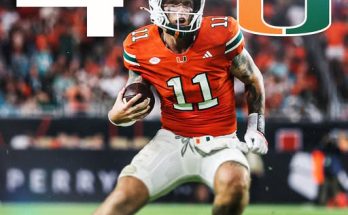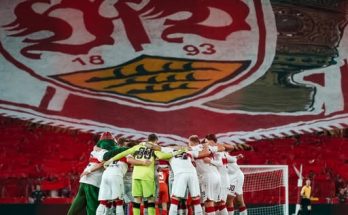The landscape of college football, a world often defined by tradition and historical dominance, has been rattled by a seismic shift that reverberated from the release of the preseason Coaches Poll. For the first time in an astounding twenty-six years, since the nascent days of the Bob Stoops era, the Oklahoma Sooners find themselves completely unranked.1 This is not a slight; it is a stark, public statement from their peers—the very coaches who vote in the poll—that the Oklahoma program has fallen from its perch as a perennial top-tier contender. The news arrives not as a whisper, but as a thunderous declaration, signaling a new and uncertain chapter for a program that has been a near-constant fixture in the college football elite for a quarter-century. This historical nadir is more than just a number; it’s a reflection of the profound challenges and questions that now surround the team as it embarks on its second season in the unforgiving crucible of the Southeastern Conference.
The last time Oklahoma was left out of the preseason Coaches Poll, the college football world was a vastly different place. It was 1999, the year Bob Stoops arrived in Norman to take over a program in disarray.2 The internet was still a novelty, the Bowl Championship Series was in its infancy, and a then-unknown quarterback named Tom Brady was in his final season at Michigan. Stoops, in that initial unranked season, would lay the groundwork for one of the most dominant runs in modern college football history, a streak of success that would see the Sooners ranked in every single preseason Coaches Poll for the next twenty-five years. This new unranked status is a definitive break from that legacy, a symbolic end to an era of near-unbroken prominence that began under Stoops and continued through the tenures of Lincoln Riley and, for the first three seasons, Brent Venables. It’s a return to the wilderness that the program hasn’t experienced in the lifetime of its youngest fans and players.
The reasons for this unprecedented drop are multifaceted, a combination of on-field performance, key personnel changes, and the brutal reality of their new conference. The 2024 season, Oklahoma’s first in the SEC, was an unmitigated disaster that served as a rude awakening.3 After a promising start, the team stumbled to a 6-7 finish, a mark that included a loss to Navy in the Armed Forces Bowl. The offense, a hallmark of the program for over two decades, was a shadow of its former self, finishing near the bottom nationally in both passing and scoring. The struggles were particularly glaring at the quarterback position, a place where the Sooners have historically groomed Heisman Trophy winners and first-round NFL Draft picks. Following the season, quarterbacks Jackson Arnold and Michael Hawkins Jr.4 entered the transfer portal, leaving a significant void. This offensive regression, more than anything, seemed to shake the confidence of the coaching community. For a program built on offensive firepower, the lack of a clear, proven leader at the game’s most important position is a major red flag.
In an effort to rectify the offensive woes, head coach Brent Venables made a pivotal and arguably desperate move, hiring Ben Arbuckle as the new offensive coordinator.5 Arbuckle, who previously served as the offensive coordinator at Washington State, is tasked with resurrecting a unit that was once the envy of the college football world.6 To lead this new-look offense, the Sooners secured the services of Washington State transfer quarterback John Mateer, a player with a lot of buzz but no experience in the SEC.7 The success of this season, and indeed the future of the program under Venables, will largely hinge on how quickly Mateer can acclimate to the league’s ferocious defenses and how effectively Arbuckle’s scheme can translate to the SEC’s demanding style of play. These are significant questions, and the Coaches Poll’s decision to leave Oklahoma unranked suggests that, for now, the answers are not inspiring confidence among their peers.
Perhaps the most daunting factor contributing to Oklahoma’s unranked status is their schedule, a gauntlet that would challenge even the most established SEC programs. The move from the Big 12 to the SEC means the Sooners will face a schedule loaded with elite, ranked opponents. Their 2025 slate is brutal, featuring home games against perennial powerhouses like Michigan, Ole Miss, and LSU, and grueling road matchups against South Carolina, Tennessee, and the seemingly invincible Alabama Crimson Tide.8 In total, seven of Oklahoma’s opponents this season are ranked in the preseason poll.9 For a team trying to find its footing, this schedule is less a challenge and more of a trial by fire. Coaches, in their voting, are undoubtedly looking at this schedule and seeing a path fraught with potential losses, making it difficult to justify a preseason ranking for a team with so many unknowns.
The emotional impact of this historic ranking, or lack thereof, is palpable. For a fanbase accustomed to contending for national championships and residing in the top ten, being left out of the top twenty-five entirely is a source of both frustration and motivation. The unranked status has been framed by many within the program as “bulletin board material,” a slight to be used as fuel for a redemption tour. But the reality is that the unranked designation is a reflection of a deeper trend. For the first time, Oklahoma finds itself in a new reality, where its storied past and brand name no longer guarantee it the benefit of the doubt. The coaches’ poll, while not an infallible predictor of the future, is an aggregate of expert opinions from the very people who spend their lives studying the sport, and their collective judgment is that Oklahoma has a great deal to prove.
The unranked status also places a new and intense pressure on Brent Venables. In his first three seasons in Norman, Venables was initially ranked No. 9, No. 19, and No. 16, respectively.10 These rankings, even if a bit generous, provided a buffer and a sense of expectation. Now, entering his fourth season, he faces a different kind of challenge. The grace period is over, and the expectation is no longer just to improve, but to prove that the program belongs in the SEC’s upper echelon. The unranked label is a public rebuke, a signal that the program’s prestige has eroded and that a successful turnaround is far from a given. This season will be a referendum on Venables’ vision and leadership, and his ability to navigate the team through a historically difficult schedule without the safety net of a preseason ranking will define his tenure. The path back to national relevance, a path that once seemed a birthright, now feels longer and more arduous than it has in a generation.


